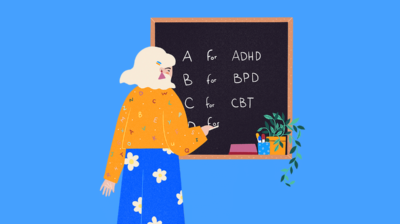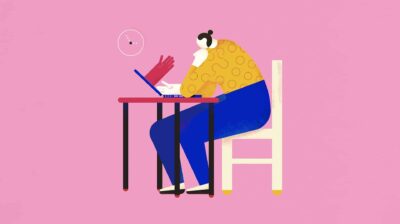What is Bipolar Disorder?
Find supportive information on bipolar disorder

Bipolar disorder is a mood disorder. Mood disorders are a type of mental health condition that involve distressing changes in a person’s mood that cannot be easily explained by what is happening in their life.
What is bipolar disorder?
If you have bipolar disorder, you will experience extreme changes in mood, from “highs” (mania, sometimes called elation, and/or hypomania) to extreme “lows” (depression). Episodes of mania and depression usually last several weeks or months, and come with significant changes in your energy, thinking, and behaviour. Without appropriate support and self-management tools, these mood changes can negatively impact your daily life, including work, education, finances, and social life.
Symptoms of mania
During mania, you may:
- Feel restless and plan too many activities for a given time
- Have increased energy levels
- Sleep less, without feeling tired
- Become easily irritated
- Have racing thoughts and talk at a fast pace
- Be more likely to take risks, leading to reckless driving, sexual choices, spending sprees, or increased use of alcohol or drugs.
- Give unusual attention to previously unimportant or irrelevant things
- Have false beliefs of self-importance, power or knowledge
During mania, a person is at higher risk of making unwise or risky decisions about their health, work, or finances.
What is hypomania?
Not everyone with bipolar disorder experiences mania. Some people experience hypomania, which is a milder form of mania. Hypomania leads to increased energy levels and feelings of positivity for a shorter time. Episodes of hypomania usually lasting just a few days rather than weeks or months. They are also less likely to interfere with your ability to function in different areas of life.
Symptoms of depression
During depressive episodes, you may:
- Feel worthless, helpless, hopeless, and/or guilty
- Lose all interest in people and enjoyable activities
- Have appetite changes leading to over- or under-eating and weight changes
- Feel tired all the time
- Sleep more than usual or have trouble sleeping
- Have trouble concentrating
- Have aches and pains that have no physical cause
- Think about death, or attempt suicide
- Have false beliefs about being inadequate or not good enough
What is the difference between depression and low mood?
Depressive episodes are different from temporary low mood or mood changes in response to stressful life events, environmental changes, or hormonal fluctuations. If you are experiencing a depressive episode, you will experience symptoms for most of the day, every day, for at least two weeks.
Who is affected by bipolar disorder?
An estimated one in 50 adults in Ireland lives with bipolar disorder. Bipolar disorder can affect people of all backgrounds, and men and women can be impacted equally by the disorder.
The exact cause of bipolar disorder is unknown, but evidence suggests that both environment and genetics influence the development of the condition. Having a close family member with a type of bipolar disorder can increase your risk of developing the condition. If you the condition, you will likely have started noticing differences in your mood, thinking and behaviour patterns from your late teens or early adulthood.
How do I know if I have bipolar disorder?
While all people with bipolar disorder experience disturbances in mood, these mood disturbances can be experienced differently depending on the type of bipolar disorder and the pattern of manic (or hypomanic) and depressive episodes.
Types of bipolar disorder
The three types of the condition are:
- Bipolar type I disorder: You have had at least one episode of mania lasting more than one week, and some depressive episodes which may become more common over time
- Bipolar type II disorder: You have had at least one depressive episode and experienced hypomania for at least four days
- Cyclothymic disorder: You’ve had episodes of both hypomania and depression over the course of at least two years, but the symptoms haven’t been severe enough for a diagnosis of bipolar I or II
Patterns of mood episodes
The following patterns of manic (or hypomanic) episodes are not currently considered separate types of bipolar disorder. People with bipolar I or bipolar II may experience any of the four patterns:
- Bipolar with rapid cycling: You live with symptoms of bipolar I or bipolar II and have experienced four or more depressive, manic, hypomanic or mixed episodes within a year. Experiencing rapid cycling at one time in your life does not necessarily mean you will always experience this pattern
- Bipolar with mixed features: You live with symptoms of bipolar I or bipolar II and experience episodes of mania (or hypomania) and depression together or very quickly after one another. Mental health professionals sometimes describe this pattern as “mixed affective bipolar”
- Bipolar with seasonal pattern: You live with symptoms of bipolar I or II and notice that your mood episodes follow a seasonal pattern or change based on the time of year
- Unspecified bipolar: Your symptoms of bipolar, including the pattern of manic (or hypomanic) and depressive episodes do not fall into any of the above diagnostic categories
Reaching out for professional support
Experiencing difficult life circumstances or stressful events can worsen the symptoms of bipolar disorder. Stressful events can include abuse or the death of a loved one. After living without mania (or hypomania) and depression for a long period, you might find that symptoms return and require professional treatment. Whether for new symptoms of suspected bipolar disorder or a recurrence, it is best to seek professional support early. This can help you manage its long-term effects on your well-being and daily life.
Whatever your individual experience with bipolar disorder, it is important to remember that living a full, meaningful life is possible with appropriate professional support and strategies for managing symptoms that work best for you. If you suspect you are living with bipolar disorder, it is best to visit your GP to discuss support and treatment options.
When managing symptoms of bipolar disorder with a healthcare professional, an important aspect of being treated with dignity means having a say in your treatment and support plan. This often includes being involved in shared decision-making around medications, talk therapies, and other support options. A combination of both medication and talk therapies is considered most effective in managing symptoms.
Feeling overwhelmed and want to talk to someone?
- Get anonymous support 24/7 with our text message support service
- Connect with a trained volunteer who will listen to you, and help you to move forward feeling better
- Whatsapp us now or free-text SPUNOUT to 50808 to begin.
- Find out more about our text message support service
If you are a customer of the 48 or An Post network or cannot get through using the ‘50808’ short code please text HELLO to 086 1800 280 (standard message rates may apply). Some smaller networks do not support short codes like ‘50808’.






